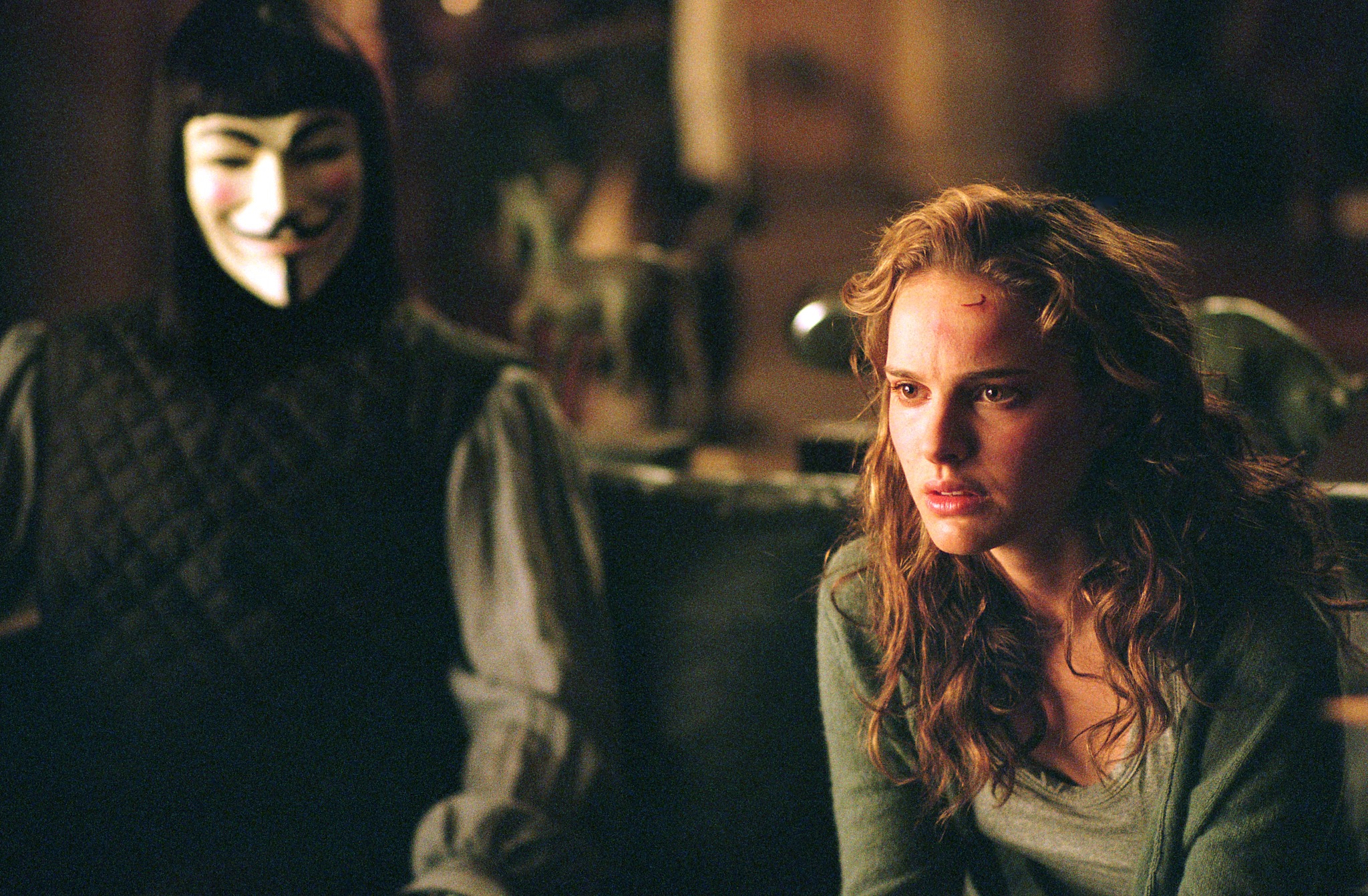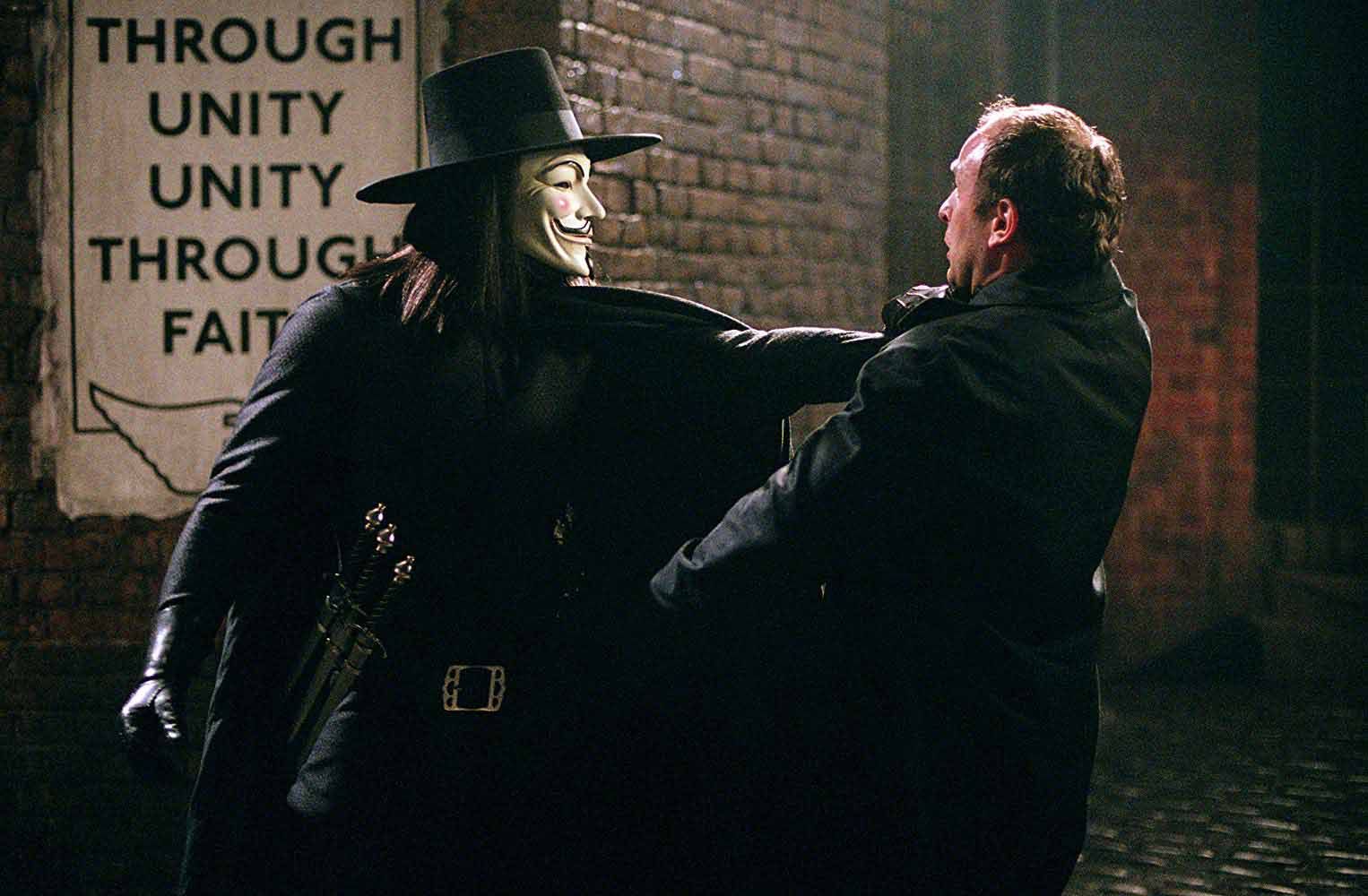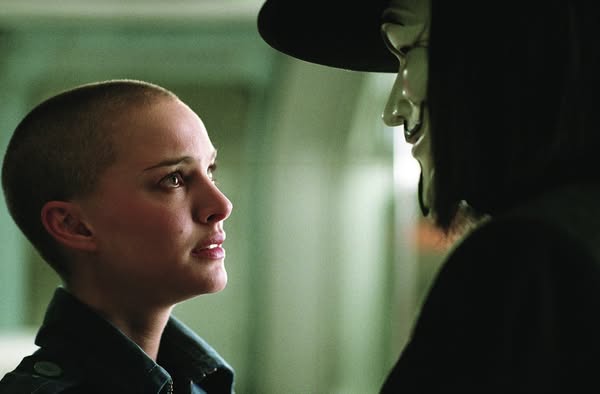V for Vendetta (2005)
- tranthuthuy
- December 4, 2024

V for Vendetta (2005) is an action-thriller and dystopian science fiction film directed by James McTeigue and produced by Warner Bros. Based on the graphic novel by Alan Moore and David Lloyd, the film is set in a future England, where a totalitarian government rules with fear and oppression. The story follows a mysterious vigilante known as V (Hugo Weaving), who seeks to bring down the corrupt government. Through his journey, the film explores themes of freedom, revolution, and the fight for justice.
The plot of V for Vendetta revolves around Evey Hammond (Natalie Portman), a young woman who becomes involved with the enigmatic V after he saves her from an attack by the government’s secret police. V, masked in a Guy Fawkes mask, has a personal vendetta against the government and aims to inspire a revolution by orchestrating acts of defiance. Throughout the film, V’s complex motives and past are revealed, and Evey’s character undergoes a significant transformation as she grapples with her own sense of freedom and identity.
At the core of V for Vendetta is the theme of resistance against oppression. The film presents a powerful commentary on the dangers of unchecked government power and the importance of individual freedoms. V’s battle against the fascist regime mirrors the struggles of countless revolutionaries who have fought for justice throughout history. The idea that one person can make a difference, as V’s character exemplifies, resonates with audiences as a call to action against tyranny.
The performances in V for Vendetta are outstanding, particularly from Hugo Weaving and Natalie Portman. Weaving, despite wearing a mask for the entire film, conveys deep emotion and intensity through his voice and physicality. His portrayal of V is both charismatic and enigmatic, making him a memorable anti-hero. Natalie Portman, as Evey, delivers a compelling performance, capturing the vulnerability, strength, and transformation of her character. The chemistry between the two actors adds emotional depth to the film, especially as Evey begins to understand V’s philosophy and personal struggles.

Visually, V for Vendetta is striking. The film’s cinematography uses dark, moody tones to reflect the oppressive atmosphere of the dystopian society. The futuristic yet decaying settings enhance the feeling of a world on the brink of collapse. The use of the Guy Fawkes mask, which has become a symbol of rebellion, is a powerful visual motif throughout the film, representing the facelessness of revolution and the idea that anyone can stand up against tyranny. The film’s visual style is complemented by a haunting and evocative soundtrack that heightens the emotional intensity of the scenes.

The philosophical and political undertones of V for Vendetta are what elevate it beyond a typical action film. The film asks thought-provoking questions about identity, power, and the price of freedom. It explores the fine line between justice and vengeance, showing how personal trauma can shape a person’s actions and beliefs. Additionally, the film is a commentary on the role of media and propaganda in controlling public perception, making it particularly relevant in today’s world of political polarization and social unrest.

In conclusion, V for Vendetta is a powerful and thought-provoking film that blends action, drama, and social commentary. With strong performances from its lead actors, a visually engaging style, and a compelling narrative, the film remains relevant and impactful. It serves as a reminder of the importance of standing up for freedom and justice, even in the face of overwhelming oppression. V for Vendetta is not just an action-packed thriller, but also a timely reflection on the dangers of authoritarianism and the enduring power of resistance.











